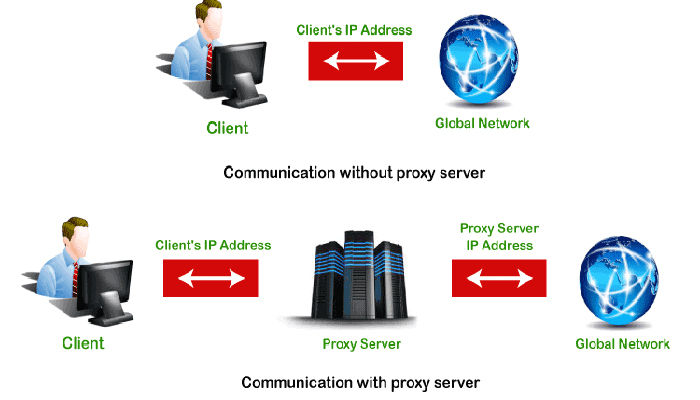What is a Proxy Server and How Does it Relate to an ISP?
A proxy server is a computer system or application that acts as an intermediary between user requests and the internet. It provides a way for users to access websites and other online services anonymously and securely. It also helps to protect user data from hackers, malware, and other malicious activities. Proxy servers can also be used to bypass Internet Service Provider (ISP) restrictions on certain websites or services. By connecting through a proxy server, users can access websites or services that may otherwise be blocked by their ISP connection. This makes it possible for users to access content without being tracked by their Internet provider.
The Benefits of an ISP Using a Proxy Server to Improve its Network Performance
An Internet Service Provider (ISP) can improve its network performance by using a proxy server. A proxy server acts as an intermediary between the ISP and the user, allowing for faster internet speeds and increased data security. It also allows ISPs, like those proxy-seller.com is selling, to control what type of content is being accessed on their networks, helping prevent malicious activities such as malware or phishing attacks. By using a proxy server, ISPs can ensure their customers are getting the best possible experience when accessing the internet. Furthermore, it can help reduce latency issues which can lead to improved overall network performance.
Exploring Different Types of Proxy Servers & Their Relevance to ISPs
Proxy servers are important for Internet Service Providers (ISPs) to provide secure access to the Internet. They act as an intermediary between users and the websites they visit, allowing ISPs to control access and improve performance. There are three main types of proxy servers – reverse, forward, and transparent proxies – each with their own advantages and disadvantages. In this article, we will explore how these different types of proxies can be used by ISPs for different purposes. We will also discuss the relevance of these proxy servers in terms of security and performance for ISPs.
How Can ISPs Utilize a Proxy Server to Make their Networks More Secure?
Proxy servers are an invaluable tool for ISPs to make their networks more secure and protect them from malicious activities. By using web filtering tools, they can block access to unwanted websites and content, as well as enforce firewall rules in the network perimeter security layer. Moreover, proxy servers can be used to monitor user activities and detect any suspicious activity on the network. They can also be used to limit bandwidth usage by users or applications that consume too much bandwidth. In this way, ISPs can ensure that their networks remain secure and reliable for their users.
Choose the Best ISP Proxies for Maximum Efficiency and Security
Choosing the right ISP (Internet Service Provider) proxies is essential for achieving maximum efficiency and security when browsing the web. With so many different ISPs available, it can be difficult to know which one is best for your needs. To help you make an informed decision, we have compiled a list of the top ISPs that offer reliable proxies with maximum efficiency and security.
We will look at their features, pricing plans, customer service, and more to determine which one is best for your needs. We will also discuss some of the common use cases of ISP proxies such as masking IP addresses or bypassing geo-restrictions. By understanding these use cases, you can make sure that you are choosing an ISP proxy that meets your specific requirements.
Follow – https://fashionpronews.com for More Updates

